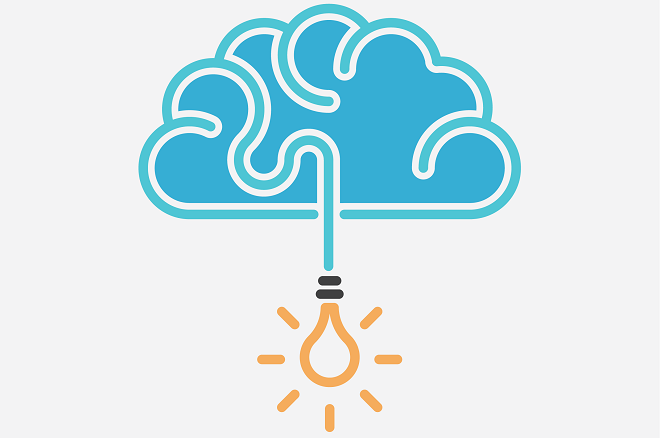There are tons of different ways that people learn new things. Sometimes you see something and learn it, sometimes you read about it and then you understand it, and the examples go on and on. But what about Meditation?
I don’t mean the kind involved in religious practices, but rather the habit of taking some time each day to quiet the mind and focus on the breath. It’s a daily practice just like exercise, but for the mind instead of for the body. Meditation has been around for thousands of years and it’s only gotten more and more popular as time has gone on.
Meditation has some incredible health benefits, such as reduced stress, increased longevity and so on. But are people learning Japanese by using meditation? The answer might surprise you as to how it can help.
Let’s take a look behind the scenes to see what happens to your brain when you meditate regularly and how it can make it easier for you to learn Japanese.
What Does Meditation Do to Your Brain?

Meditation does a lot, and there are over 1,000 studies that show how it positively impacts you. But there are three in particular that are supportive to learning Japanese (or any language really) that I want to talk about.
(1) It Increases Grey Matter
When you learn a new language, that information has to go somewhere. What happens is that your brain actually opens up a new area to store the second language. This area is made up of material that’s known as “grey matter” and it is crucial to being able to remember and recall the new language at a later time.
Your grey matter will increase naturally on it’s own while you are learning Japanese, but there is no reason why you can’t accelerate the process by other means. Over time, a consistent meditation habit will increase the grey matter in your brain which will allow you to have an already made, ready to go storage system for the new language to go to and be retrieved from.
More on this part can be read in this study.
(2) It Puts Your Brain into the Alpha State
Another thing that meditation does is to slow down the rate (or frequency) at which your brain is operating. Normally, your brain is operating at what is known as the Beta State, which is simply the normal level on consciousness for most people.
But when you meditate it slows the brain down and puts you into the Alpha State. This is the idea state for learning anything, and languages in particular.
When you’re in this state of heightened relaxation the new information bypasses the critical part of you mind (the sentry if you will) and goes straight into your working memory. What this means is that you’ll end up putting in less work and effort in order to learn the same information.
(3) It Gives Your Brain the Fuel it Needs
To get into the Alpha State, It’s not enough to just relax (you could do that by drinking alcohol). What you need to be is relaxed, but alert. When you meditate, one of the things you do is focus on your breath. You will be engaged in deeper breathing than what most people do while they are in the Beta State (most people breathe shallowly throughout the day).
The interesting this is that even though the human brain is only 2% of the body’s weight, it actually consumes 20% of all the oxygen! Simply put, your brain needs lots of fresh oxygen in order to function at an optimal level and most people aren’t getting it throughout the day.
By taking some time to meditate, and engage in deep breathing while doing so, you are flooding your brain on a regular basis with lots of fuel that it needs to survive. This is also one of the reasons why people who exercise on a regular basis tend to have healthy and alert minds – they breath a lot while running, swimming, lifting, etc. and it replaces the old stale air in their lungs with new clean air.
How to Meditate
It’s actually super simple. The basic premise is that you want to take some time (10-20 is perfect) to be alone, somewhere you won’t be disturbed and calm your mind. Get into a relaxed position in your favorite chair and close your eyes. Then focus on your breath, focus on the inhale and the exhale and let your mind be still.
This is incredibly hard for people who are just starting out as their brains have been set to non-stop chatter for most of the time. There are a couple of ways that you can handle this.
The first way is to chat a mantra to yourself in your mind. In other words, if the little voice in your head won’t be quiet, then give it a job – something to say. There are lots of mantras that are really good. I like the So-Hum one in particular where you whisper in your mind “So” while you inhale, and the “Hum” while you exhale. Don’t try to fit your breath to the words, do the opposite – breath in and out naturally and let the words follow that pattern.
Just to be crystal clear, you’re not actually saying anything aloud, just in your mind. If your thoughts wander during this part, just bring them back gently to the mantra and your breath.
Another great way to get started would be to use a guided meditation. This is where you listen to someone instruct you on what to do. You can find lots of them on YouTube and the internet. They are nice because it helps you to stay focused since someone is letting you know what to do every minute or so.
I particular like the ones that include relaxing music with them, and music is a great way to stimulate the right half of the neo-cortex and get your brain prepared for whole-brain learning when you study Japanese.
When to Meditate
Now the idea time to meditate would be right before you start a study session so that your brain is still in the Alpha State and has just been flooded with lots of rich oxygen. If you used a meditation with music, even better as you can actually keep the music going while you study to help you stay relaxed and enjoy the benefits of using music while studying Japanese.
But even if you don’t study right after meditating, you will still be able to reap the benefits of increased grey matter, less stress and anxiety, and an increase in focus throughout the day up to and including when you learn new Japanese words and phrases.
So the conclusion to the question “can meditation help you learn Japanese” is Yes – it helps in an indirect way by putting your brain into an optimal learning state.
I don’t think that it’s necessary to take up a daily meditation practice in order to learn a new language, but I DO believe that it helps. The fact of the matter is that your brain changes while you are learning a new language, and meditation can help with this process to make is easier.
But at the end of the day, it’s your choice as to which study methods you use to learn Japanese.
…
I hope you guys enjoyed this post, and I hope you learned something you think is pretty cool!
I want to hear from you! Do you meditate? Do you think it’s pseudoscience?
Let me know what you thoughts are on this with a comment below!
Further Resources for Learning Japanese:
#3 Get My eBook (Secrets to Learning Japanese) for Free

またね!

When I saw the title of this article I immediately thought of some sort of osmosis where you place the book next to your head and then meditate and the Japanese simply flows on. While I’ll freely admit I’m a bit disappointed that that doesn’t appear to be the case, it does sound like a very worthwhile concept to explore!
While I have not personally meditated more than a bit (my mind immediately wanders) I have read plenty of research that shows the benefits of people who meditate extensively really can activate specific portions of their brain to make themselves feel incredibly euphoric. I agree that meditation has many benefits, I just wish it was easier to focus on!
Haha, hey man I WISH it worked that way! It would be just like Neo in The Matrix where you could download any new skills that you wanted within a few seconds!
I hear ya’ on the mind wandering too. It takes a while to get into the habit of focusing while doing meditation. But I still find it easier when there is some sort of guide so that you only have to focus for a minute or two before you receive new instructions.
Thank you for sharing this information. I am fan of Japanese culture and want to learn Japanese. How long would you suggest to do the meditation before study? I would like to give it a try
Probably just 10 minutes would be good. But even if you only did it for 5 minutes right before studying, you’d still get a lot of benefit from it from relaxing and increasing your focus.
Like I said, using meditation will help in an indirect way. It will put you into a better position to take in the new information, but it doesn’t need to be complicated at all.